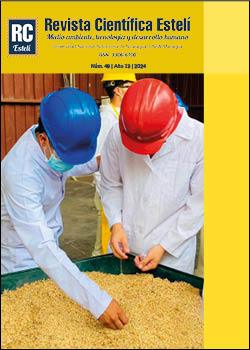Knowledge, use and perception of Artificial Intelligence in higher education
DOI:
https://doi.org/10.5377/esteli.v13i49.17889Keywords:
Inteligencia artificial, docente, estudiante, percepción, conocimientoAbstract
This study focuses on the knowledge, use and perception of Artificial Intelligence (AI) according to teachers and students of the Knowledge Area Education, Arts and Humanities. The objective is to determine the knowledge, use and perception that the university community has about AI. The methodology used is mixed (qualitative and quantitative). A questionnaire was used as a technique and a survey with open and closed questions was applied as instruments, these were sent to teachers and students, via Google form, and shared via WhatsApp. The sample consisted of 54 teachers and 256 students. The results show that 85% of teachers and 93% of students have knowledge about AI. In terms of perception, the terms “virtual assistant” and “technology” are associated with AI; in relation to use, 39.8% of students use it for research, followed by 31% to learn a language, while the majority of teachers also use it for research (48%), followed by leisure (29%). It is concluded that AI is a tool that stimulates personalized training and contributes to collaborative learning. Moreover, it is a meaningful tool if used responsibly and ethically in the classroom. AI should not be seen as a threat to teachers, but as an ally that contributes significantly to the teaching-learning process.
Downloads
2989
HTML (Español (España)) 333
Published
How to Cite
Issue
Section
License
Copyright (c) 2024 Revista Científica de la FAREM-Estelí

This work is licensed under a Creative Commons Attribution-NonCommercial-ShareAlike 4.0 International License.
© Revista Científica de FAREM-Estelí

